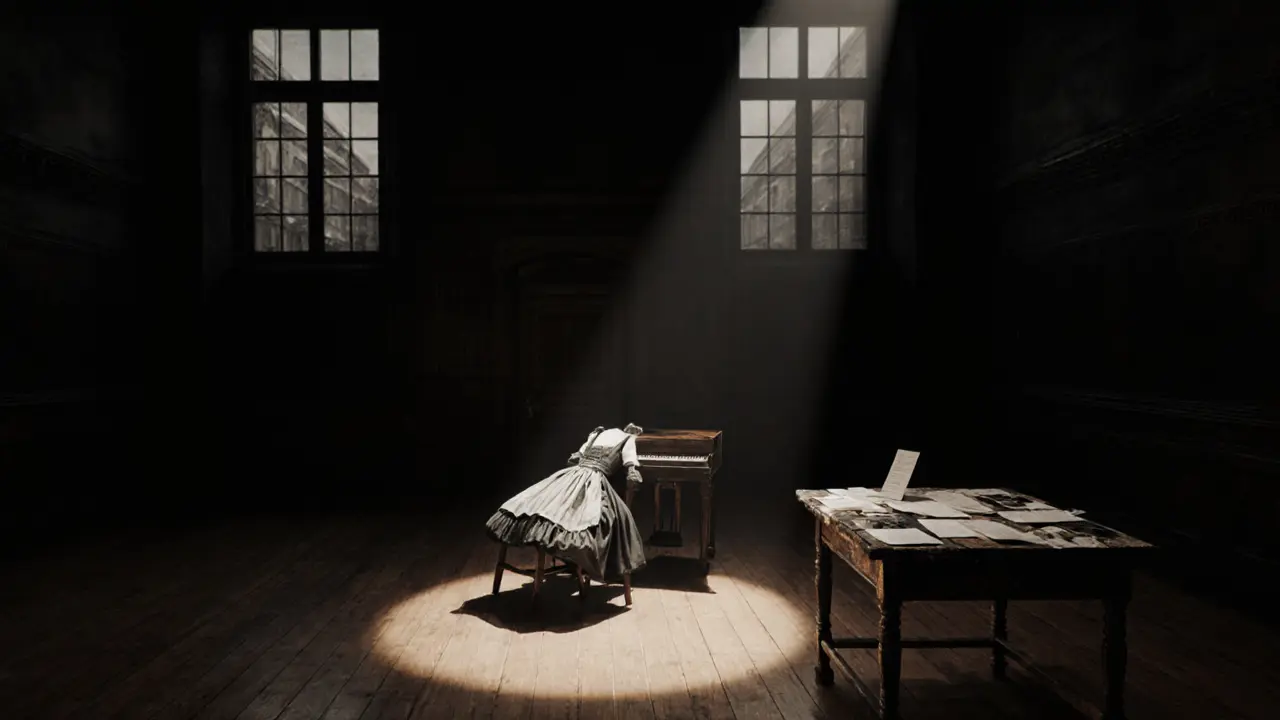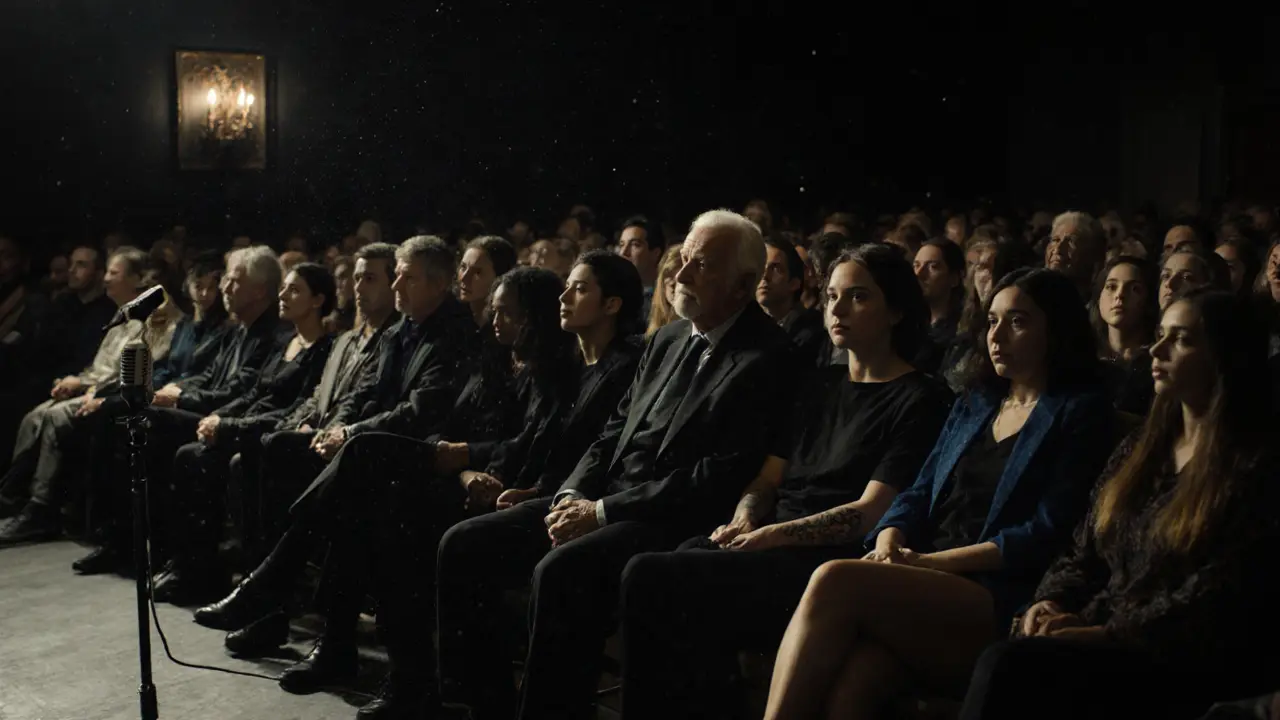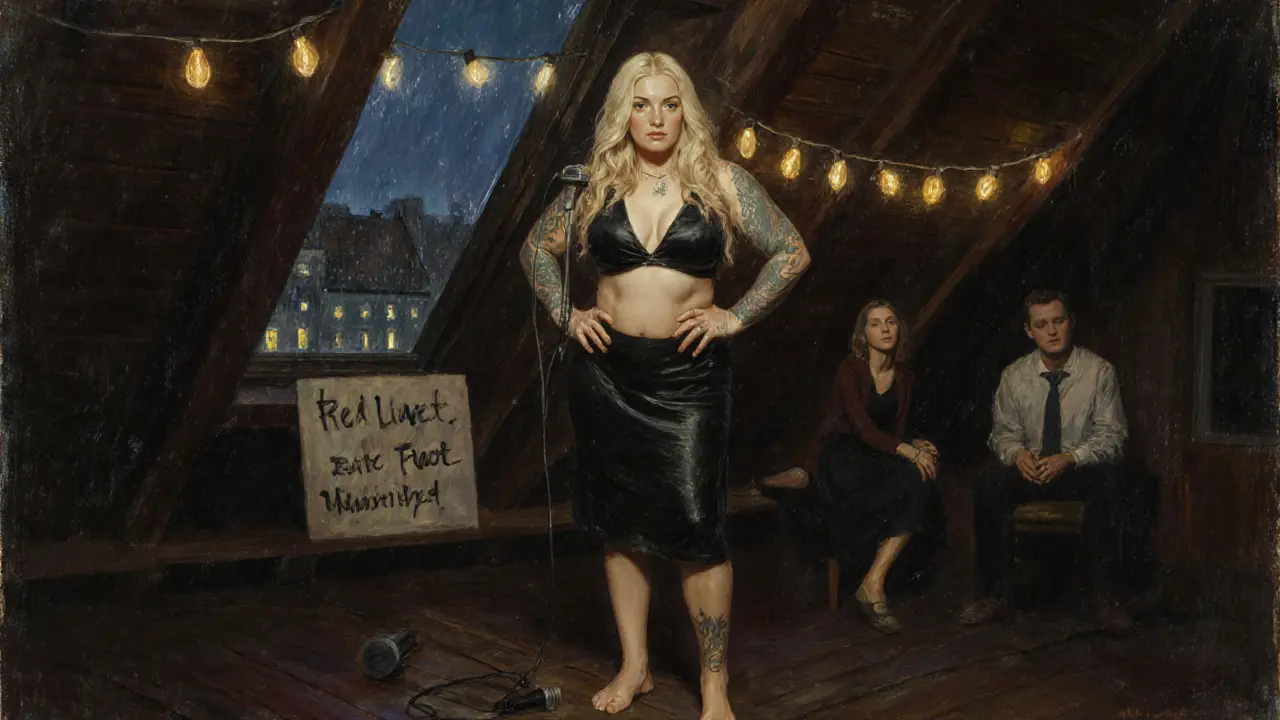
Lilli Vanilli isn’t just a name you hear in whispers at backroom clubs in Munich. She’s a force that reshaped what it means to perform, to own a stage, and to turn raw passion into unshakable power. By the time she walked off the stage at the legendary Lilli Vanilli’s Munich in 2023, she had turned a single cabaret act into a cultural landmark - one that drew tourists, locals, and industry insiders alike, all hungry for something real.
How It Started: A Stage in the Shadows
It wasn’t glamorous at first. In 2017, Lilli rented a tiny room above a beer hall in Schwabing, just off Prinzregentenstraße. No fancy lights. No marketing budget. Just her, a microphone, and a set of bold, unapologetic stories about growing up queer in a small Bavarian town. She called it ‘The Velvet Diary.’ The first crowd? Three people. One was her ex. Another was a confused tourist. The third? A booking agent from the infamous Club 7 who stayed for all five acts.By 2019, she had outgrown that space. She moved into the former ballroom of a 1920s hotel on Leopoldstraße - a place that had once hosted jazz musicians and smugglers. She stripped the chandeliers, painted the walls matte black, and installed a single spotlight. No velvet ropes. No VIP sections. Just a stage, a bar, and an open door. That’s when the name Lilli Vanilli’s Munich stuck.
What Made It Different
Most adult venues in Munich leaned into fantasy - silicone, sequins, and scripted seduction. Lilli did the opposite. Her shows were raw, personal, and often hilarious. One night, she’d recount how her grandmother caught her practicing pole spins in the bathroom. The next, she’d perform a spoken-word piece about the first time she kissed a woman in a train station restroom, all while wearing a full Bavarian dirndl.She didn’t hide her body. She didn’t pretend to be someone else. She was Lilli - 5’7”, tattoos running down both arms, a scar from a motorcycle accident across her collarbone, and a laugh that could shake the room. Her audience didn’t come for titillation. They came for truth.
Her shows weren’t just performances. They were conversations. She’d stop mid-song to ask someone in the front row, ‘Why are you here?’ One man said he came because he was scared of his own sexuality. Another, a 72-year-old retired teacher, said she made him feel seen for the first time since his husband died. She kept those stories. Wrote them down. Turned them into songs.
The Business Behind the Art
Lilli never took investors. She didn’t sell merch. She didn’t license her name. Instead, she ran Lilli Vanilli’s Munich like a community center with a stage. Entry was pay-what-you-can. She hired only local performers - drag queens, burlesque dancers, poets, and former sex workers. Everyone got paid the same: €120 per show, no tips, no exceptions.By 2022, she was turning away offers from Berlin and Amsterdam. A major streaming platform wanted to film her shows. She said no. ‘This isn’t content,’ she told them. ‘It’s a space. You can’t stream a space.’
Instead, she launched ‘The Velvet Archive’ - a free, non-digital collection of handwritten letters, photos, and setlists from every show since 2017. Visitors could sit at a wooden table, flip through the books, and leave their own notes. Over 12,000 entries filled the shelves by 2024. No login. No app. Just paper and presence.

Impact Beyond the Stage
The city of Munich didn’t know what to do with her. The police never shut her down - not because they liked her, but because they couldn’t find a law broken. No drugs. No underage patrons. No harassment. Just art, honesty, and human connection.By 2023, the local government quietly funded a cultural study on her venue. The report concluded: Lilli Vanilli’s Munich is the most significant grassroots cultural institution in the city’s adult entertainment sector since the 1970s.
She inspired a new wave of performers. In 2024, over 20 new venues opened across Munich with the same ethos: no gimmicks, no exploitation, no corporate sponsors. They called themselves ‘The Lilli Movement.’
Her influence reached beyond nightlife. Local schools began inviting her to speak about identity and expression. She declined. But she started a free weekly workshop for queer youth in the basement of her venue - no sign-up needed. Just show up. Bring a snack. Talk. Sometimes, they sang. Sometimes, they cried. Always, they left with a new name for themselves.
Why It Ended
In October 2023, Lilli announced the final show. No big announcement. No social media post. Just a handwritten note taped to the door: ‘I’m tired. You’ve been enough.’The last night drew 417 people. No cameras. No interviews. Just silence as she walked on stage, sat on a stool, and played piano for 47 minutes. She didn’t speak. Didn’t sing. Just played ‘Für Elise’ - the same piece her mother taught her when she was seven.
When she left, she didn’t take anything. Not the stage lights. Not the microphone. Not even the books from The Velvet Archive. She left them all. Said the space belonged to the people who filled it.

What’s Left
The building still stands. The black walls are still there. The spotlight still hangs above the stage. The wooden table with the archive? Still there too. Visitors come every day. Some sit. Some write. Some just stare at the empty stage.There’s no sign. No website. No Instagram. But if you ask anyone in Munich who remembers Lilli Vanilli, they’ll point to that building and say: ‘That’s where passion became power.’
Legacy That Doesn’t Need a Logo
Lilli Vanilli never wanted to be famous. She didn’t want to be remembered. She just wanted to be real - and she made sure others could be too.Today, you won’t find her on any list of ‘Top Adult Performers.’ No documentaries. No biopics. No merchandise. But if you walk into any of the new venues in Munich that say ‘No Corporate Sponsors,’ you’ll see her influence - in the way performers speak to their audience, in the way people feel safe to be themselves, in the way art doesn’t need permission to matter.
That’s the kind of power that doesn’t fade. It just changes shape.
Who was Lilli Vanilli?
Lilli Vanilli was a performer, artist, and cultural figure who ran a groundbreaking venue in Munich called Lilli Vanilli’s Munich. She combined cabaret, spoken word, and personal storytelling to create a space that rejected exploitation and celebrated raw human truth. Her shows were known for their honesty, emotional depth, and community focus.
Where was Lilli Vanilli’s Munich located?
Lilli Vanilli’s Munich was located in a converted 1920s hotel ballroom on Leopoldstraße in Munich. The venue replaced an earlier, smaller space in Schwabing where she began performing in 2017. The building still stands today, empty but unchanged, serving as a quiet monument to her work.
Did Lilli Vanilli perform in other cities?
No. Lilli Vanilli refused all offers to expand her show to Berlin, Amsterdam, or elsewhere. She believed her work was tied to Munich - its people, its history, and its quiet resistance to commercialization. Her entire legacy is rooted in that one city.
Was Lilli Vanilli’s venue legal?
Yes. Despite its adult themes, the venue never violated any laws. There were no drugs, no underage patrons, no forced performances, and no solicitation. The city’s authorities eventually acknowledged it as a legitimate cultural space, even commissioning a study on its impact in 2022.
What happened to The Velvet Archive?
Lilli left The Velvet Archive in the venue after closing. It remains there today, open to the public. Visitors can read handwritten letters, photos, and setlists from every show between 2017 and 2023. Over 12,000 entries have been added by guests - many of whom never met Lilli but felt connected to her work.
Is there a way to see footage of her shows?
No official recordings exist. Lilli refused all offers to film or stream her performances. She believed the experience was meant to be lived, not watched. A few unofficial phone clips circulate online, but they’re low quality and often removed. The real legacy lives in the people who were there.


